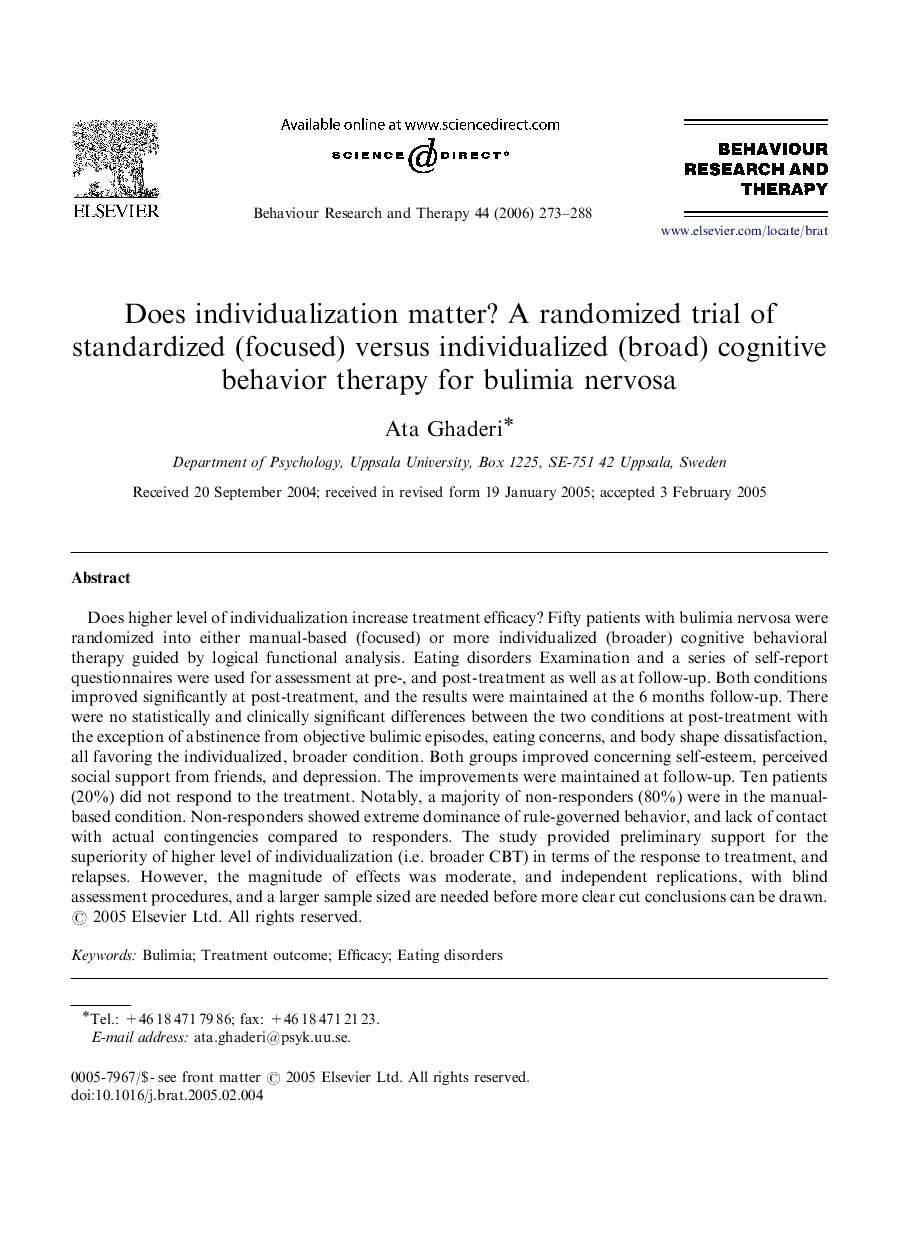| Article ID | Journal | Published Year | Pages | File Type |
|---|---|---|---|---|
| 902636 | Behaviour Research and Therapy | 2006 | 16 Pages |
Does higher level of individualization increase treatment efficacy? Fifty patients with bulimia nervosa were randomized into either manual-based (focused) or more individualized (broader) cognitive behavioral therapy guided by logical functional analysis. Eating disorders Examination and a series of self-report questionnaires were used for assessment at pre-, and post-treatment as well as at follow-up. Both conditions improved significantly at post-treatment, and the results were maintained at the 6 months follow-up. There were no statistically and clinically significant differences between the two conditions at post-treatment with the exception of abstinence from objective bulimic episodes, eating concerns, and body shape dissatisfaction, all favoring the individualized, broader condition. Both groups improved concerning self-esteem, perceived social support from friends, and depression. The improvements were maintained at follow-up. Ten patients (20%) did not respond to the treatment. Notably, a majority of non-responders (80%) were in the manual-based condition. Non-responders showed extreme dominance of rule-governed behavior, and lack of contact with actual contingencies compared to responders. The study provided preliminary support for the superiority of higher level of individualization (i.e. broader CBT) in terms of the response to treatment, and relapses. However, the magnitude of effects was moderate, and independent replications, with blind assessment procedures, and a larger sample sized are needed before more clear cut conclusions can be drawn.
